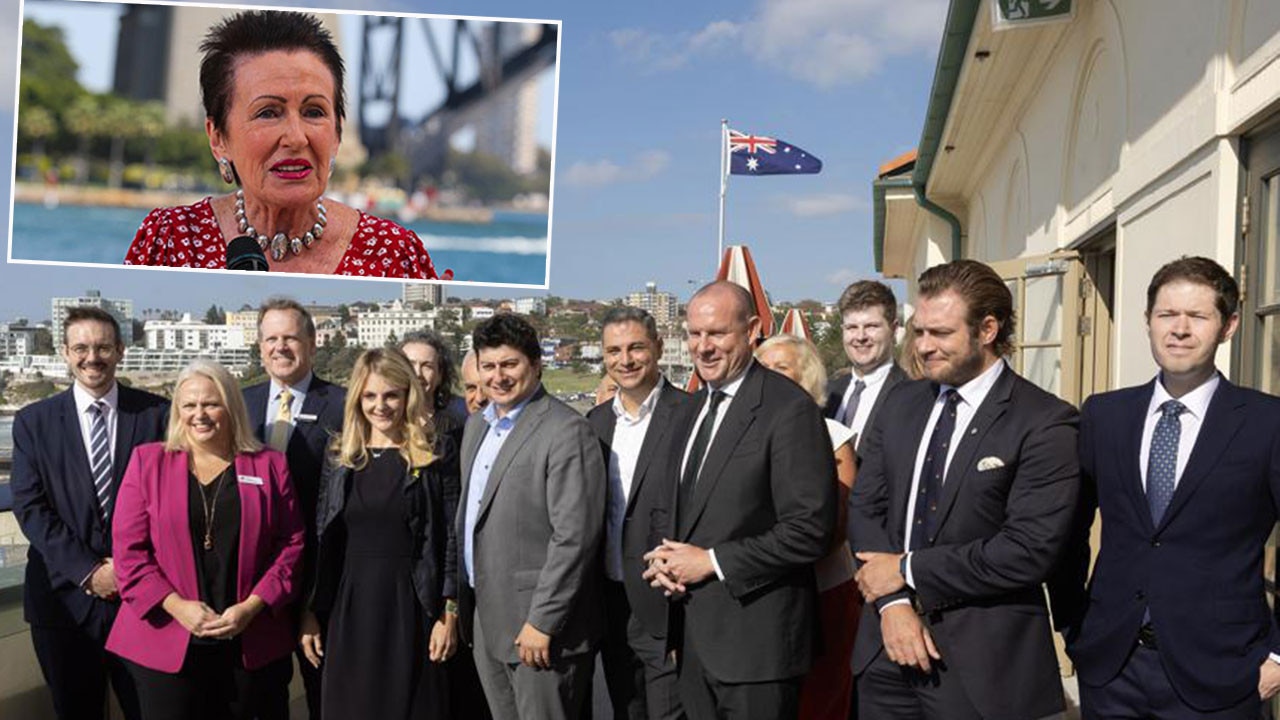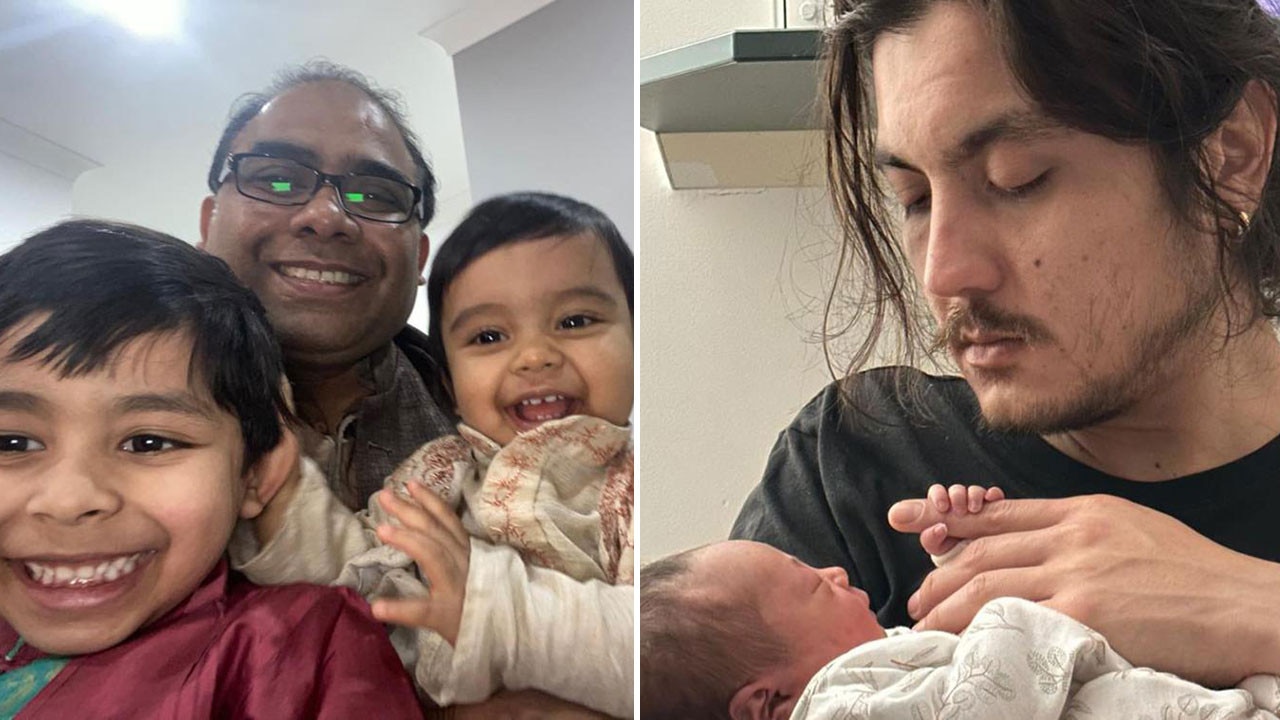Young Ukrainian refugees who escaped war settle into life in Australia
They have escaped their war-torn homeland, but the challenges are far from over for young Ukrainian refugees thousands of miles from their family.
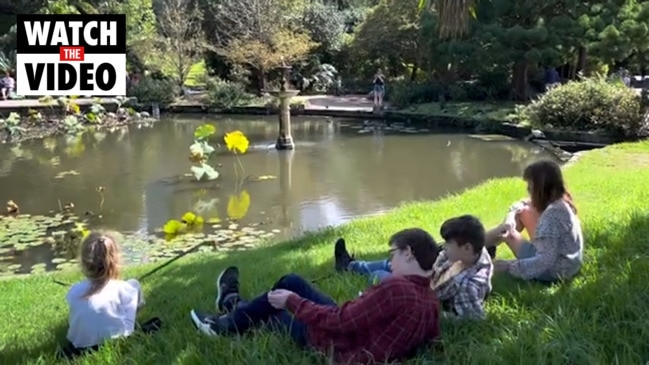
NSW
Don't miss out on the headlines from NSW. Followed categories will be added to My News.
Her son’s 10th birthday, a trip to Taronga Zoo and her children’s first days at an Australian school are some of the milestones stored in a video diary for a mother who’s fighting to defend her homeland Ukraine.
Ukrainian siblings Kyrylo and Anastasiia Prokopchuk, 10 and 12, left their parents behind to seek refuge in Australia following a Polish airport debacle that separated the pair at
an Emirates boarding gate before they were reunited at Sydney airport back in March.
Now, almost two months on, their only contact with their parents, who remain on Ukraine’s frontline, is a nightly phone call with their veterinarian mum and a weekly chat with their soldier dad.
Yet rather than the exchanging of war letters, it is a YouTube video diary maintained by their Australian guardians Olga and Dmytro Bablinyuk that’s keeping the Prokopchuk parents in touch with their children’s key moments.
“(A video diary) is what I would like to have if my kids were away, I would like to have some moments of them to watch and understand that they’re all right,” Olga Bablinyuk told Saturday Extra.
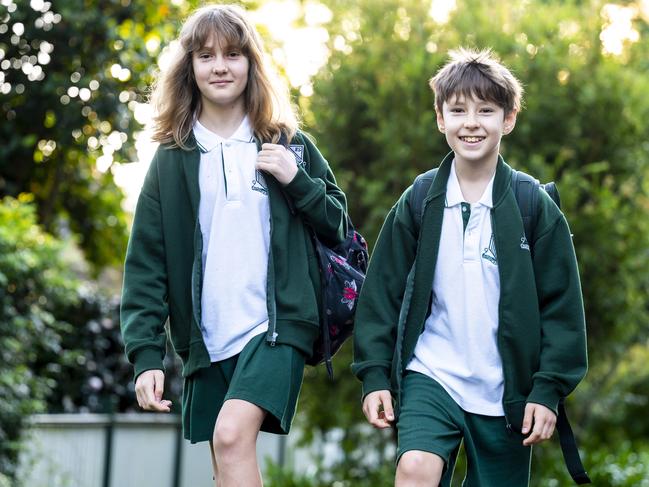
The short clips capture Kyrylo, Anastasiia and their Australian “siblings”, Egor and Kiera, exploring Sydney landmarks, particularly places that reflect where the Ukrainian siblings see their future.
Anastasiia, who wants to be a biologist when she grows up, loves visiting the zoo and aquarium, and in one video is seen interacting with a kookaburra.
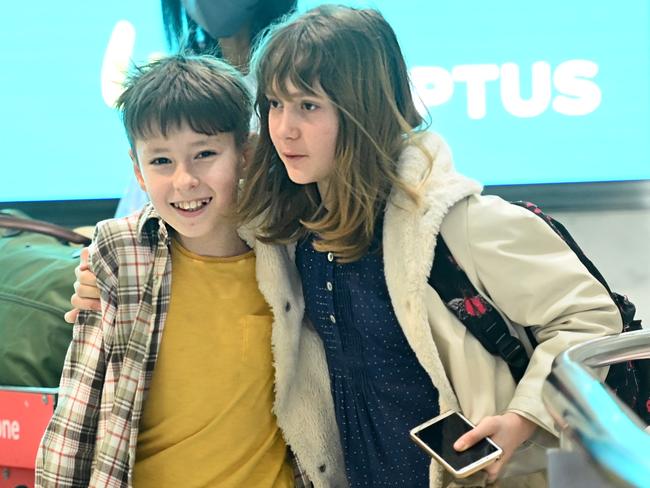
Kyrylo, who loves gymnastics, is captured enjoying the awe-inspiring Sydney Harbour view while travelling on a ferry.
But even as they explore the endless possibilities of their new lifestyle, it’s the relaxed Australian culture that Dmytro Bablinyuk has found the children are struggling with.
“Ukrainian society is like sport. You need to be ready to fight, and to be tough, sometimes rough, you need to compete and the schoolchildren need to prevail to exist,” Bablinyuk said.
“Changing that attitude is something that we are working on with them.”
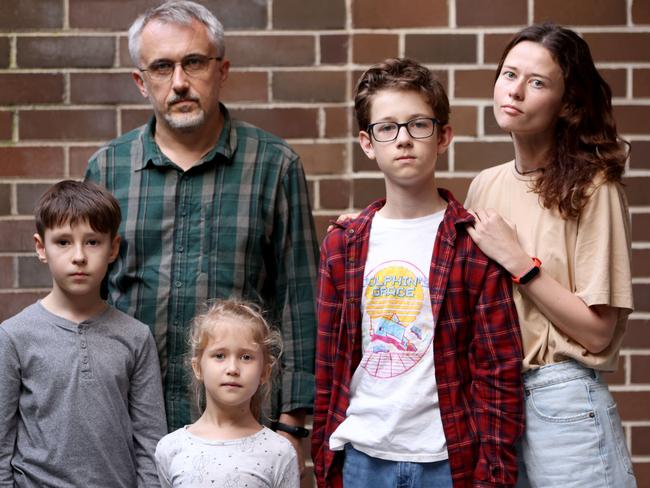
Introducing them to Australian food is another challenge, with Anastasiia and Kyrylo not yet in love with Vegemite.
The pair describe Vegemite on toast as “salty”, Kyrylo grimacing at the taste before rejecting the idea of eating it for his school lunch.
But cultural challenges aside, the pair face a far bigger question: Will their mother Anna-Mariia Mykytiuk join them in Australia?
“Two months ago she said she wouldn’t move to the country. She said she would rather die because it would look like she’s left all her dreams such as her vet clinic and she worked hard to get to that point,” Olga Bablinyuk said.
But today, as the war enters its ninth week, Anna-Mariia Mykytiuk describes those in Ukraine as “not living, but surviving”, in fear as her drug-affected neighbour roams the street outside her apartment block armed with a gun.
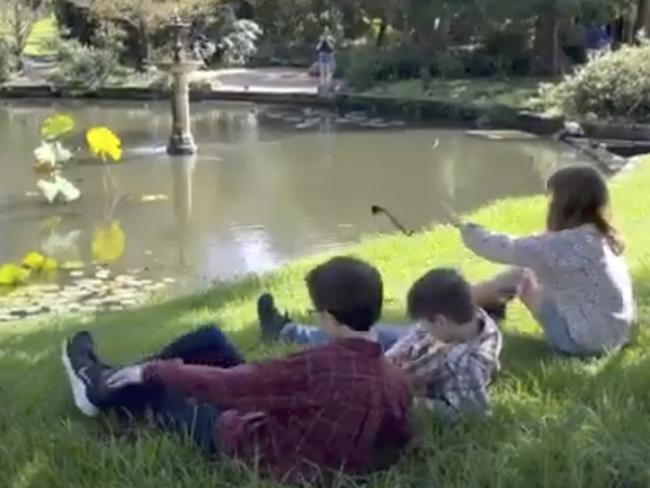
“You wake up in the morning and you leave the house and you have to prepare to be on guard because someone could do something to you or say something insulting. The law doesn’t work properly so you always have to defend yourself and be aware of your surroundings,” she said.
The children’s father Yevhenii Prokopchuk has seen his country’s destruction first-hand while fighting on the frontline, telling the Bablinyuks that reuniting the children with their mother would be best for their family.
“At the end of the day, the kids need their mum,” Dmytro Bablinyuk said.
Having migrated to Australia himself many years ago, he understands the challenge of leaving one’s motherland.
“If you leave Ukraine, there’s no way to come back. If you immigrate here you need to abandon everything and you need to be confident.
“Immigration is a very hard process, I’ve been through it. You need to be a believer and commit 100 per cent because the process takes years,” he said.
The Sydneysider is also working to help his sisters escape the war and come to Australia. One is a single mum with a disabled child.
“It will take generations to change this, tens of millions of people just hate each other. People are killing their own people and that’s something (Kyrylo and Anastasiia’s) mother is seeing,” Dmytro Bablinyuk said.
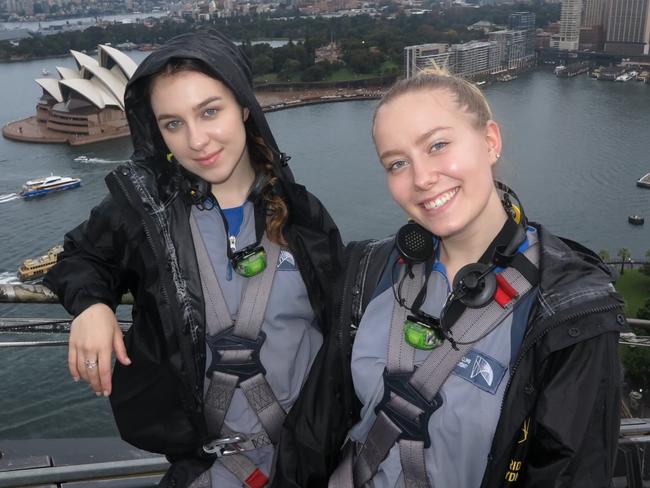
Ukrainian dancers Mariia Borsiak, 19, and Vlada Makushina, 21, only arrived in Australia on Tuesday morning but already are facing myriad challenges.
The pair are among 750 Ukrainian performing arts students relocating to theatre schools across the globe and, like Kyrylo and Anastasiia, were forced to leave their parents behind.
Mariia escaped to Poland prior to coming to Australia, leaving behind her father who has a heart condition but is forced to stay behind due to mandatory conscription.
The 19-year-old’s little sister and mother also managed to flee but remain in Krakow.
Vlada was confined to an apartment hallway in Kyiv, sleeping on the floor without a mattress as it was the only place she felt safe while shells fell around her.
The 21-year-old eventually escaped but her parents remain in Mariupol where the conflict is described as at its worst right now. Her father continues to defend his country despite an injury to his leg.
Jasmine Straga, who is on the board of the World Circus Federation and has been involved in the relocation of Ukraine’s talented circus students, took Mariia and Vlada under her wing on their arrival in Sydney, but it’s been no easy feat.
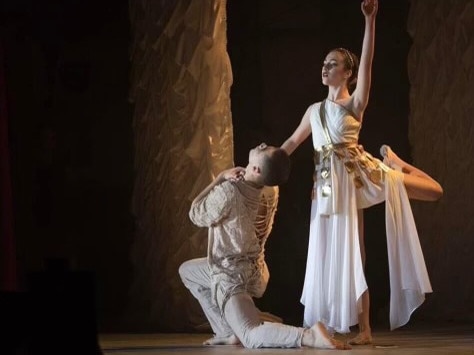
Tuggerah dance and performing arts school Lee Academy is providing the girls with a six-month scholarship and full-time dance diploma, but Straga still has to cover everyday costs, including their dancing gear.
“I won’t be able to (bring more students to Australia) because this is already a huge financial burden just for two,” Straga said.
“Out of the 292 students we have rehomed, these two have been the most complicated because of Australia and the rules and the lack of community access because of bureaucracy over visas.”
Straga is calling on the federal government to fulfil its promise to grant humanitarian visas to every Ukrainian seeking support from Australia.
“(The danger of a refugee visa is that) it puts a black mark on a person’s name and it will make it very difficult for them to perform and tour around the world, because they’ll be classed as an overstay risk wherever we try to get visas,” Straga said. “It’s just so important that the government gets this temporary humanitarian one done.”
A humanitarian visa, which Mariia and Vlada will apply for shortly, will grant them access to work, study and Medicare benefits, but many Ukrainians in Australia are finding the process lengthy and confusing.
“The Department of Home Affairs has processes in place to ensure that individuals can progress to a THC visa as quickly as possible,” a Department of Home Affairs spokesman said.
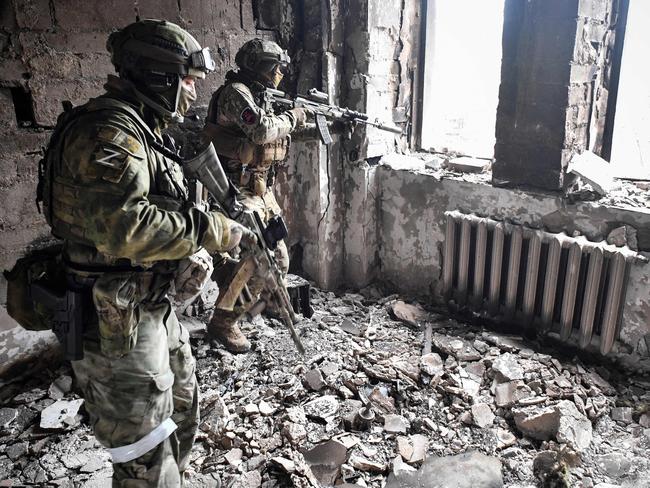
Kyrylo and Anastasiia Prokopchuk waited more than two weeks to have their applications approved, with guardian Dmytro Bablinyuk fearing their current visas would expire before they received a response.
“The process is moving but very slowly,” he said.
In addition to simplifying the visa process, Straga is asking the NSW government to provide support for Ukrainian expats by covering the cost of public transport.
“We’re pleading with the minister of transport and the state Premier to get travel for these girls because the cost per week is $65 each for their Opal cards to get the bus to and from training, and that’s a big barrier for us,” she said.
Currently a Vodafone SIM card is all that’s connects Mariia and Vlada with their Ukrainian families. But with the telco potentially withdrawing its free international calls to Ukraine shortly, Straga fears she will be unable to pay for the girls’ phone plans.
As the dancers familiarise themselves with their new home, it’s their love for performing that’s keeping the women strong.
“When the war started, many dancers said they couldn’t dance because it was emotionally difficult,” Vlada said.
“It’s the opposite for me, during the war I ran to my academy and danced to the sounds of sirens and explosions, it’s an important part of my life.”
“Now I can’t wait to get out into the dance hall and throw out all the emotions I have accumulated.”
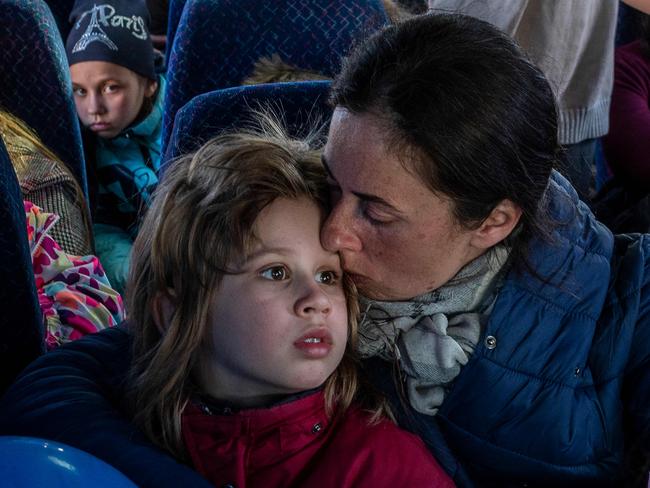
Watching an Australian Ballet performance is one of many dreams the women wish to fulfil now that they’re in Australia.
“These girls are both ballerinas and they would absolutely love to see a show or to see them train,” Straga said.
But monetary struggles prevent the girls from fulfilling that goal, with Straga and the Humanitarian Clowns Association calling on the community to help.
“We would love any donations big or small, to help us bring the two girls some relief and would appreciate any help,” Humanitarian Clowns wrote in a statement.
Straga has set up a Go Fund Me page to support hundreds of other displaced Ukrainian performing arts students seeking refuge in other countries.
Kyrylo, Anastasiia, Mariia and Vlada are among almost 3500 Ukrainian nationals who have entered Australia between February 24 and April 26 according to the Department of Home Affairs.
However, the Bablinyuks reiterate the importance of remembering the difficult circumstances thousands of Ukrainians are enduring while stranded in the war-torn country.
“After some time people stop hiding, they get used to the alarms, they’re exhausted and it’s hard to live like this,” Olga Bablinyuk said.
“So many of my friends have so many dreams and so many plans and now they’re all destroyed and they have to start from scratch in other countries.”
“In Ukraine you need to prevail to exist,” Dmytro Bablinkyuk added, reflecting on Ukrainian mentality. “If they die, they die, it’s their destiny.”
More Coverage
Originally published as Young Ukrainian refugees who escaped war settle into life in Australia



